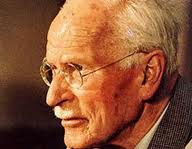 Carl Jung was a prolific speaker and writer, and many of his groundbreaking concepts of analytical psychology are contained in the books of Carl Jung. The following is a comprehensive list of Jungian books that span the career of Carl Jung.
Carl Jung was a prolific speaker and writer, and many of his groundbreaking concepts of analytical psychology are contained in the books of Carl Jung. The following is a comprehensive list of Jungian books that span the career of Carl Jung.
The Collected Works of C.G. Jung (Bollingen Series):
1. Psychiatric Studies
2. Experimental Researches
3. The Psychogenesis of Mental Disease
4. Freud and Psychoanalysis
5. Symbols of Transformation
6. Psychological Types
7. Two Essays on Analytical Psychology
8. The Structure and Dynamics of the Psyche
9i. The Archetypes and the Collective Unconscious
9ii. Aion: Researches into the Phenomenology of the Self
10. Civilization in Transition
11. Psychology and Religion: West and East
12. Psychology and Alchemy
13. Alchemical Studies
14. Mysterium Coniunctionis
15. The Spirit in Man, Art, and Literature
16. The Practice of Psychotherapy
17. The Development of Personality
18. The Symbolic Life: Miscellaneous Writings
19. General Bibliography of Jung’s Writings
20. General Index
Other Carl Jung Books:
Analytical Psychology
Collected Papers on Analytical Psychology
Contribution to Analytical Psychology
Dreams
Flying Saucers
Introduction to a Science of Mythology
Man and His Symbols
Memories, Dreams, Reflections
Modern Man in Search of a Soul (available in eBook and Audiobook)
On the Importance of the Unconscious in Psychopathology
On the Nature of the Animus
On the Nature of the Psyche
Psyche and Symbol
Psychology of the Unconscious
Synchronicity; An Acausal Connecting Principle
The Archetypes and the Collective Unconscious
The Essential Jung
The Freud/Jung Letters
The Portable Jung
The Psychology of the Transference
The Spirit in Man, Art, and Literature
The Theory of Psychoanalysis
The Undiscovered Self